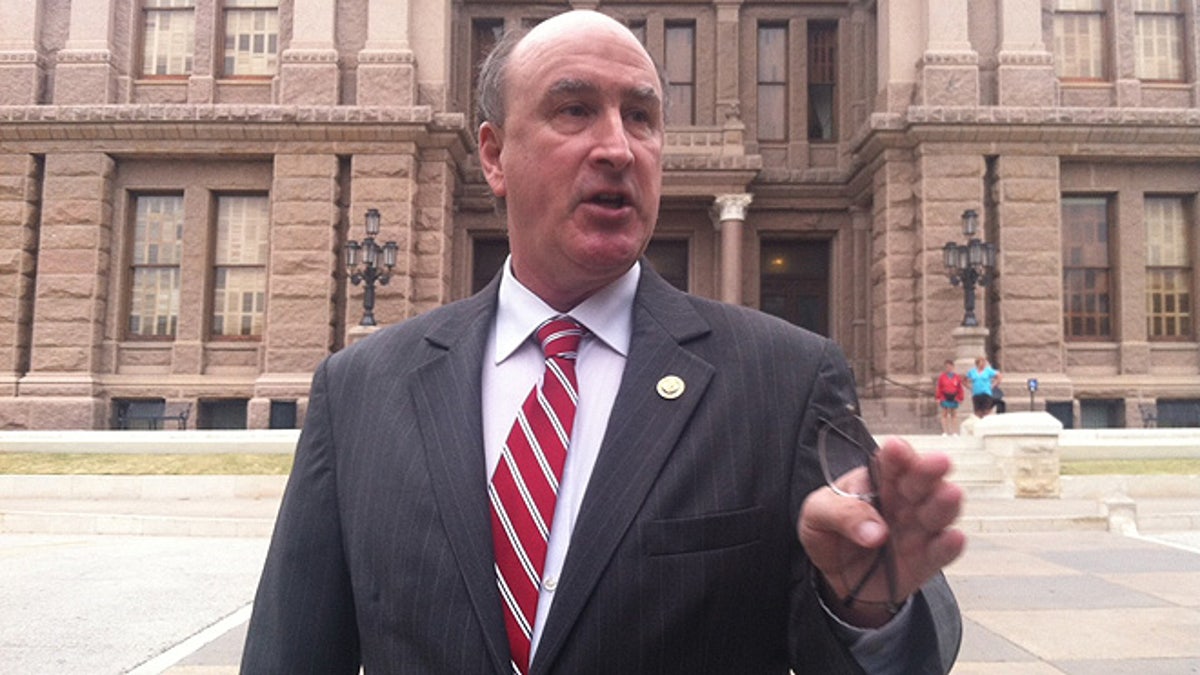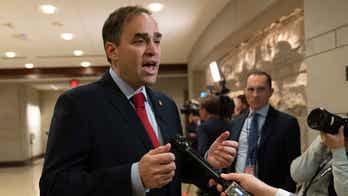
Austin, Texas, Fire Department Battalion Chief Bob Nicks blames the department, not the union, for keeping him at a desk instead of in a firehouse.
Bob Nicks has firefighting in his blood, but for the last four years, the Texas battalion chief has earned his six-figure salary sitting at a desk doing union work instead of running into burning buildings and saving lives.
As president of Austin Firefighters Association/IAFF Local 975, Nicks is office-bound by order of the chief, even though he believes he could handle union business with one weekly shift and spend the rest of his time on the job doing what he loves. He is paid for what is known as "release time," hours public sector union officials spend doing union business that are paid by their employers - taxpayers.
“Union release time is a plague on local, state and the federal governments’ finances," said Trey Kovacs, who authored a recent study of the issue for the Competitive Enterprise Institute. "The practice of allowing public employees to perform union business only benefits the labor union and serves no public purpose.”
"They could save $70,000 a year. It should be about the citizens.”
Nicks, who calls himself a "different kind of union president," hates getting paid to ride a desk. His rank earns him more than $100,000, he acknowledged, but he spends none of his 40-hour work week in a firehouse.
“I’ve been fighting to be put back to work at our fire department,” he told FoxNews.com. “The chief wouldn’t allow it. How much they have fought against me was crazy.”
Austin Fire Department Assistant Chief Doug Fowler said the system Nicks objects to has been in place for years.
"It was designed that way so that the union president wouldn’t have a chain of command, per se, and could focus and function unbiased in dealing with members’ issues with the department," Fowler said. "Additionally, Chief Nicks is eligible to work overtime on the weekends but has not done so according to our timekeeping system."
Release time costs local, state and federal governments hundreds of millions of dollars. Figures for states, counties and municipalities are not known, but at the federal level, release time costs taxpayers an estimated $122 million annually, according to the Michigan-based Mackinac Center for Public Policy. While no one disputes there is union business to be conducted, and release time is part of collective bargaining agreements, critics say the practice allows for waste and should be funded by union dues, not taxpayers.

A recent study found that thousands of hours in release time has been doled out at public agencies in Texas, in possible violation of the state constitution's “gift clause,” which bans the grant of public funds to a private entity. (Austin Fire Department)
“It’s an egregious waste of taxpayer dollars,” said Greg Mourad, vice president of the National Right to Work Committee. “There’s no reason for it and that is the problem with unionizing the public sector. They [unions] have become the most powerful lobby group in politics."
The CEI study found that Texas cities pay thousands of hours in release time to teachers, cops and firefighters, and raised the possibility that such payments violate the Lone Star State’s constitution, which "prohibits the transfer of public funds to private entities that do not serve a public purpose,” Kovacs said.
After complaints that Phoenix, Ariz., spent nearly $4 million annually on release time, state lawmakers in 2013 introduced a bill that would make ban the practice of allowing taxpayers to pay union officials for work associated with their labor organizations. The bill never made it out of the state Legislature, but a legal battle over the same issue is working its way through state courts, after a Maricopa County Superior Court judge ruled last year that release time was a violation of the state’s gift laws. Unions are appealing.
Pending legislation in Michigan would curb release time and also end a practice known as “pension spiking.” A pair of Michigan Senate bills was proposed in April after Michigan Education Association bargained for the Lansing school district to contribute $50,000 annually to the state pension system on behalf of state union President Steve Cook. The deal allowed him to collect a much larger pension despite not working for the school system.
Mourad, as well as F. Vincent Vernuccio, director of labor policy for Mackinac, said cash-strapped states are starting to look closely at deals that critics say allow public sector unions and their officials to collect taxpayer funds despite not always serving the public.
“It’s extremely troubling to see, when you have examples like union officials say there is not enough money going to public works yet they have teachers collect salaries from districts they don't even work for," Vernuccio said. "This does not help the taxpayer at all.”
Mourad said many of the practices, including release time, are hard to defend once taxpayers understand them.
“I think that is why we are starting to see a push back in general,” he said. “The free hand of the unions being held out has been a recipe for budgetary disaster and state lawmakers are starting to see that and looking for ways to reverse it.”




